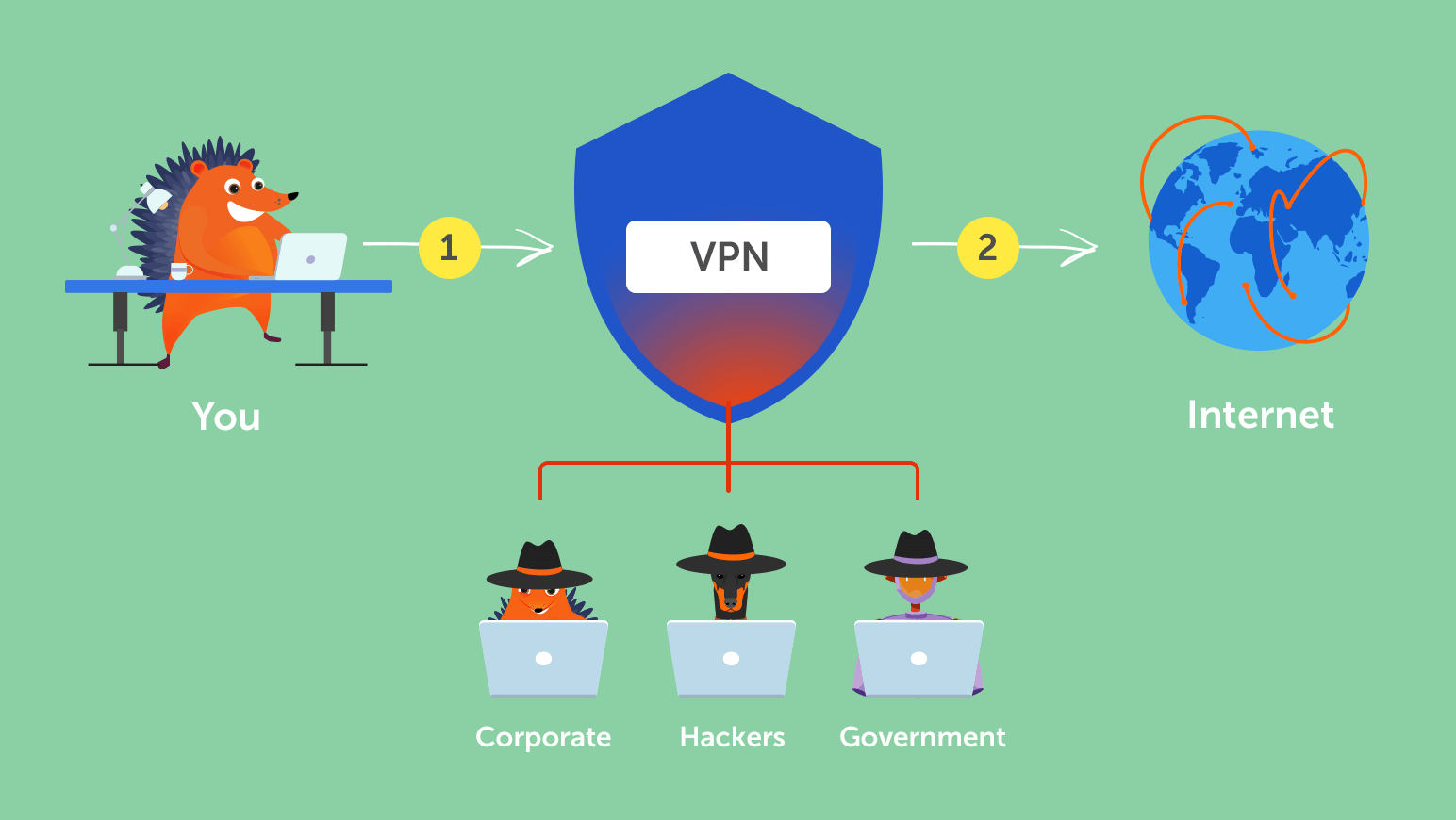
How VPNs Work: The Ultimate Guide to Online Privacy and Security
Created on 6 November, 2024 • Technolgy • 33 views • 2 minutes read
In an age where digital privacy is constantly under threat, Virtual Private Networks (VPNs) have emerged as essential tools for safeguarding our online presence. Whether you’re streaming your favorite shows, accessing restricted content.
What is a VPN?
A VPN (Virtual Private Network) is a service that encrypts your internet connection and hides your IP address, providing a secure and private way to browse the web. By using a VPN, you can mask your online activity, protect sensitive data from hackers, and even access geo-restricted content.
How Does a VPN Work?
Here’s a step-by-step breakdown of what happens when you use a VPN:
1. Connection to a VPN Server: When you launch a VPN application and connect to a server, your device establishes an encrypted connection, known as a “VPN tunnel,” with that server.
2. IP Address Masking: Your real IP address is replaced with the VPN server’s IP address. This makes it appear as though you’re browsing from a different location, keeping your real identity hidden.
3. Encryption of Data: All your internet traffic is encrypted before it leaves your device, making it unreadable to anyone who might try to intercept it, including hackers, ISPs, or government agencies.
4. Data Transmission: Your encrypted data travels through the VPN server to reach its destination. Once it reaches the website or service you’re accessing, it is decrypted and delivered.
Key VPN Features Explained
1. Encryption Protocols: VPNs use different encryption protocols, such as OpenVPN, IKEv2, and WireGuard, to secure data. These protocols ensure that your information is protected from prying eyes.
2. Kill Switch: A kill switch feature disconnects your internet if the VPN connection drops, preventing your real IP address from being exposed.
3. No-Logs Policy: Reputable VPN providers maintain a no-logs policy, meaning they don’t track or store your browsing activity.
Why Use a VPN?
1. Privacy Protection: ISPs and advertisers often track your online activity. A VPN stops this by encrypting your data and hiding your IP address.
2. Secure Public Wi-Fi Use: Public Wi-Fi networks are often unsecured, making them prime targets for hackers. A VPN adds a layer of security, protecting you from cyber threats.
3. Bypass Geo-Restrictions: Want to watch content unavailable in your country? A VPN lets you bypass these restrictions by changing your virtual location.
4. Prevent Bandwidth Throttling: Some ISPs slow down your connection speed based on your activity. With a VPN, your ISP can’t see what you’re doing, preventing throttling.
Popular Use Cases for VPNs
Streaming: Access international libraries on platforms like Netflix or Hulu.
Remote Work: VPNs help remote workers securely access company networks.
Online Gaming: Reduce latency and protect against DDoS attacks.
Are VPNs Legal?
In most countries, using a VPN is perfectly legal. However, some governments restrict or ban VPN use. It’s essential to check local laws before using a VPN in certain regions.
Drawbacks of Using a VPN
While VPNs offer many benefits, they do have some limitations:
Slower Speeds: Encrypting your data can sometimes result in slower internet speeds.
Potential Logging: Not all VPN services are trustworthy. It’s crucial to choose a provider with a strong privacy policy.
Choosing the Right VPN
When selecting a VPN, consider factors like:
Speed: Some VPNs are faster than others, especially when streaming.
Privacy: Look for a strict no-logs policy.
Ease of Use: A user-friendly interface is essential for smooth operation.
Final Thoughts
VPNs are powerful tools that offer a high level of security and privacy in today’s digital age. Whether you’re a frequent traveler, a streaming enthusiast, or just someone who values privacy, a VPN can make a significant difference in your online experience.
Stay Informed and Stay Safe! If you found this post insightful, don’t forget to share it with friends and spread the knowledge about staying secure online.
Popular posts
-
Coin Master free spins & coins daily links January 2023Games • 2,832 views
-
AI in Healthcare: Advancements and ChallengesTechnolgy • 1,630 views
-
7 Simple Steps to Rank Number 1 in Google SearchTechnolgy • 1,313 views
-
E-commerce EvolutionTechnolgy • 1,000 views
-